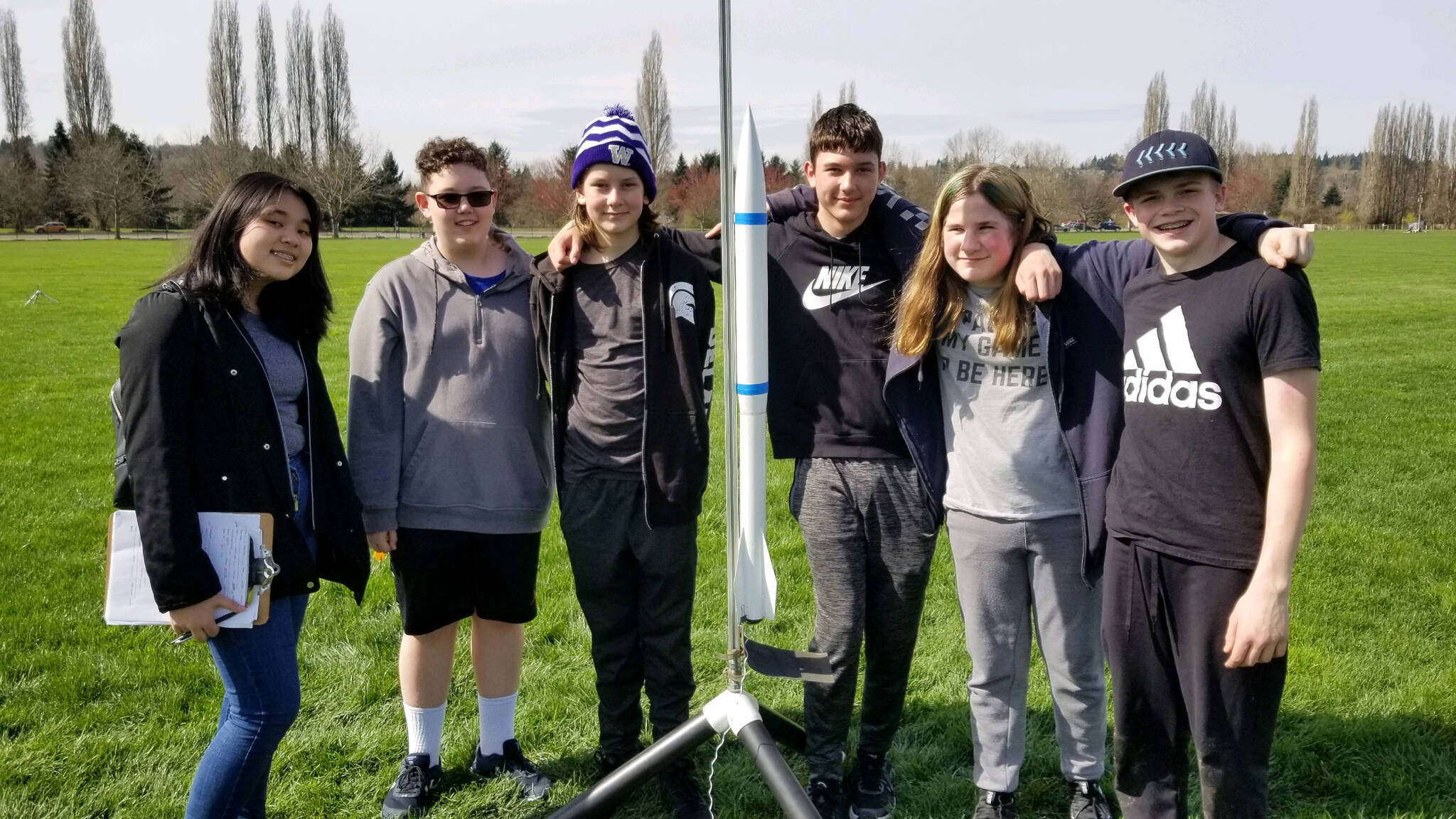A team of six students from Auburn’s Cascade Middle School will travel to Washington, D.C., to compete in the American Rocketry Challenge National Finals on May 14 for the national championship title.
The American Rocketry Challenge is the world’s largest rocketry challenge of its kind with over 4,000 students competing each year. The competition gives middle and high school students the chance to design and build a rocket, with the goal of encouraging students to pursue careers in STEM fields, according to the American Rocketry Challenge.
“The hands-on experience students gain as part of the American Rocketry Challenge creates limitless pathways in STEM and the aerospace industry, opening the door for them to be a part of the world’s most exciting innovations,” said Eric Fanning, President and CEO of Aerospace Industries Association (AIA).
Out of 700 teams that submitted their scores, Cascade Middle School and 100 other teams will compete for the championship next month, according to the American Rocketry Challenge.
Cascade’s team evolved out of the school’s larger “Mad Scientist Club,” a STEM club that does science experiments and other STEM activities, said Marc Deaver, the engineering teacher and club supervisor. It was the students’ idea to compete in the American Rocketry Challenge, Deaver said.
This is the Cascade Middle School team’s first year competing in the American Rocketry Challenge. The team designed and built their own rocket using parts they custom-made as well as pre-fabricated parts like the motor and tube, Deaver said.
The team used software called Open Rocket to design and simulate their rocket before creating it in the real world, Deaver said.
“Kids can completely design and build a rocket virtually and do test flights virtually as well to see how their rockets perform,” Deaver said. “Once we have a rocket design that is within the standards that we’re looking for and flies the way we want it to, we take the design and we build it.”
In order to qualify for the finals, teams had to build a rocket that safely transported two raw eggs to a target altitude of 835 feet with a target duration of 41-44 seconds, according to the American Rocketry Challenge.
Initially, the rocket the Cascade team designed actually flew too high, so the team had to design and build fins to create more drag and lower the altitude, Deaver said.
Deaver said that sort of problem-solving and collaboration is what makes the American Rocketry Challenge important.
“These kids are being put in the real-world hands-on situation where they have to utilize their problem-solving skills to solve real problems and real issues that come up,” Deaver said. “That and working together as a team and collaborating, it’s been a really rewarding experience for them.”
The championship will be held just outside of Washington, D.C., at Great Meadows in The Plains, Virginia. In addition to the title of national champion and the prizes, the winning team will receive an all-expense-paid trip to London for the international finals.
The top 25 teams will receive invitations to NASA’s Student Launch Workshop, according to the American Rocketry Challenge.



